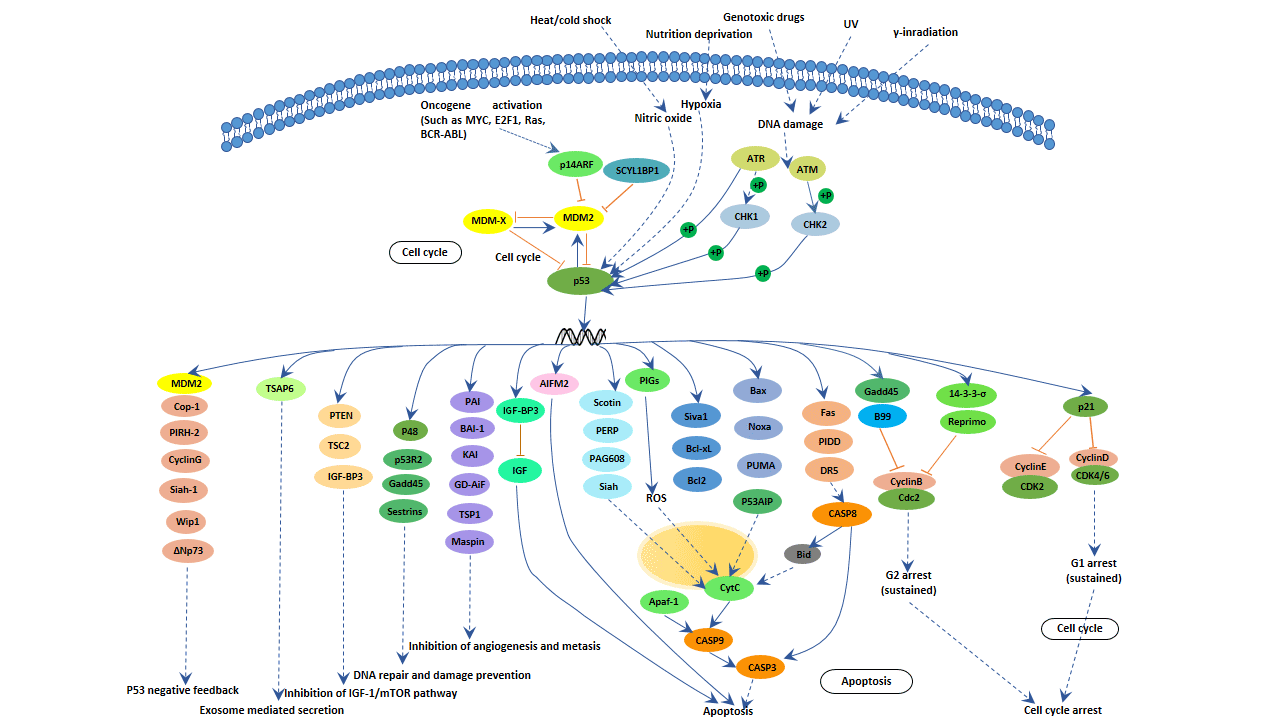
What Is Tp53?
Tumor protein p53, also known as p53 or transformation-related protein 53 (TRP53), is a tumor suppressor protein encoded in humans by the TP53 gene. The name is due to its molecular mass: it is in the 53 kilodalton fraction of cell proteins. It is a crucial component in multicellular organisms, as it regulates the cell cycle and helps prevent cancer. The p53 gene is a very important tumor suppressor gene in the human body. The missense mutation or allele deletion of p53 is highly prevalent in many tumors.
At present, human liver cancer, breast cancer, bladder cancer, ovarian cancer, brain tumor, stomach cancer, intestinal cancer, esophageal cancer, lung cancer, leukemia and other human tumors have the highest correlation with p53 gene. In most malignancies, the mutation rate of this gene is above 50%.
The Function of P53 Protein
The function of p53 protein is mainly characterized by cell cycle regulation, DNA damage repair, apoptosis, cell senescence, regulation of metabolism and reproductive development. It also has the function of inhibiting the development of cancer and regulating the body's antiviral immune response.
The Processes of p53 Signaling Pathway
P53-mediated cell signal transduction pathway plays an important role in regulating the normal life activities of cells, and it is involved in the regulation of 160 genes. Apoptosis and senescence are the main pathways by which p53 inhibits tumors.
Normal p53 can monitor and identify DNA damage points. For damaged DNA, p53 prevents DNA replication and provides time for DNA repair; for repair-failed DNA, p53 triggers apoptosis. Mutations in the p53 gene result in loss of control over cell proliferation, leading to cell carcinogenesis.
In the P53 signaling pathway, MDM2 binds to p53 to form an oligodimer complex to regulate p53 activity. The binding of MDM2 inhibits p53-mediated transactivation, inhibition of cell proliferation, and induction of apoptosis.





